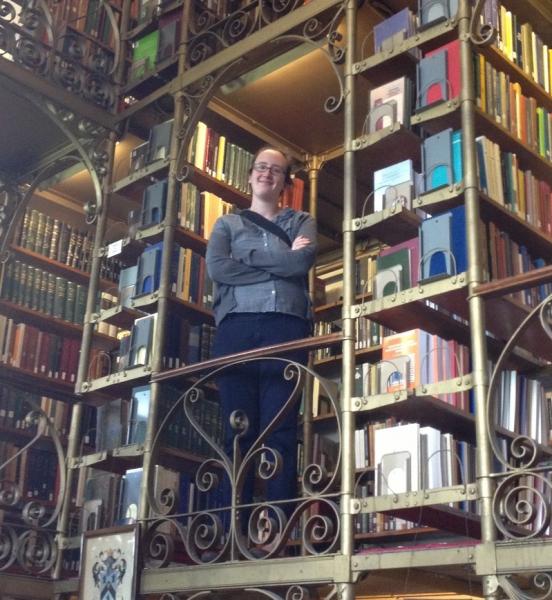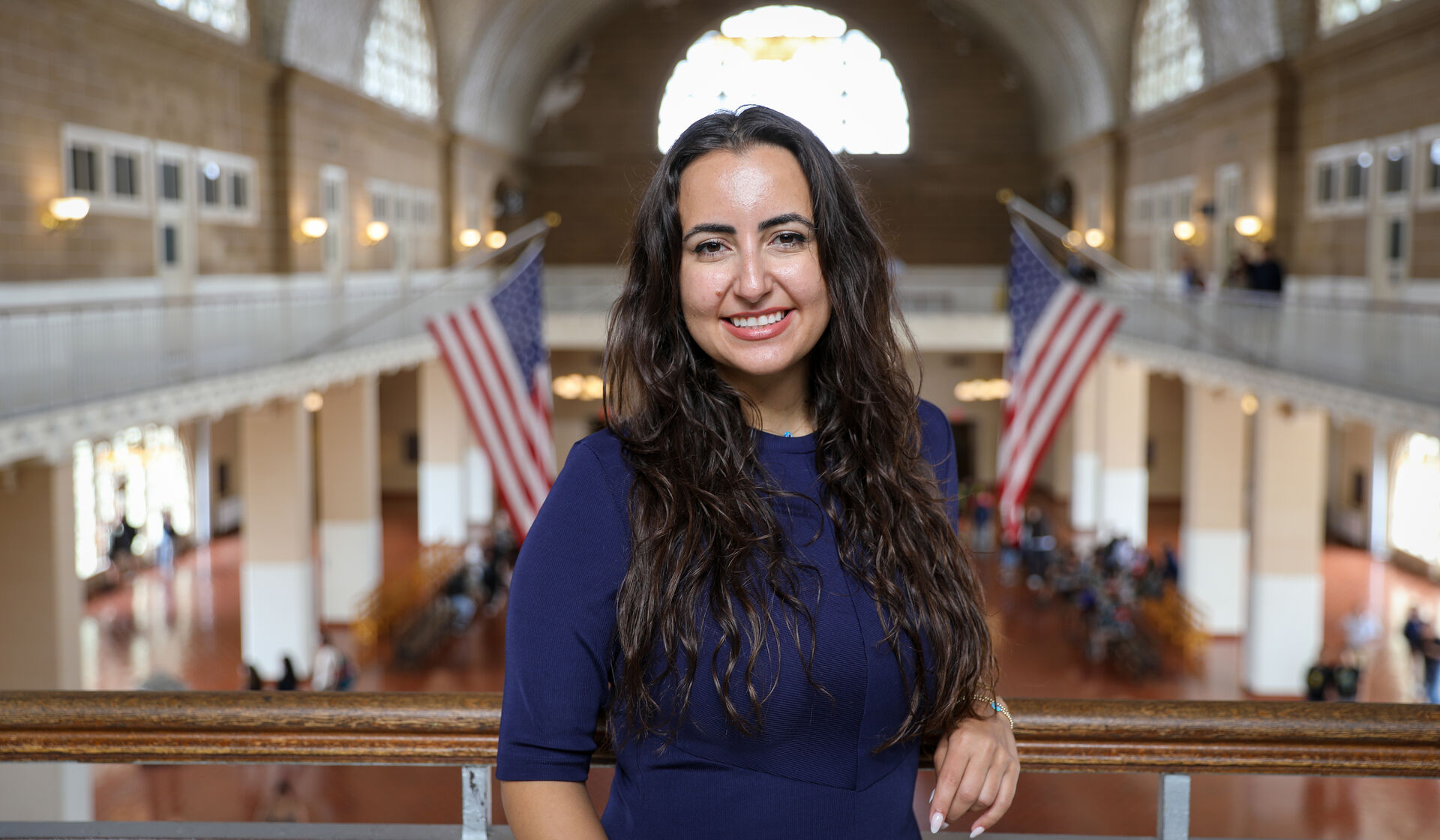Just as libraries have changed from structures with neatly shelved stacks of books to spaces with monitors accessing digital information, so have the people who work within them. Meet Caitlin Moriarty, a current U-M School of Information graduate student and young librarian of the future.
Caitlin Moriarty, a second-year student in U-M’s Masters of Science of Information program, quickly discovered the skills she needs to be a librarian in the 21st century are far more technical than traditional.
Currently she is working in the Special Collections Library at Hatcher Graduate Library, where one of her favorite compilations is the published works by modern Russian writers who were banned from publishing in the former Soviet Union.
1) What do you have to study these days to be a successful librarian?
One of the most surprising aspects of the course work for the School of Information is how technical it is. Many of my classes have focused on traditional library and archives theory, but I have also had to take programming and web development classes, and am planning on taking courses on data base creation and management. Librarians today have to organize information in every form, not just books.
2) What are some of the features you imagine will come into play in libraries of the future? Do you think you will soon be handing out google glasses so people can read archives on lenses?
In the future, I think that the focus on unique materials is going to grow. General collection materials will maybe be online, but what will bring people into libraries will be the one-of-a-kind items with particular research value.
3) What is your favorite library on campus?
The Special Collections Library reading room is on the eighth floor of Hatcher and you can see all of Ann Arbor on a clear day, although foggy days are just as beautiful. The materials in the Special Collections Library are also fascinating. I also love showing visitors the Law Library reading room, because it is so monumental.
4) Do you worry librarians won’t be needed in the future?
Librarians will also always be crucial, no matter what form collections might take. And I will always be happy to help someone find a resource.





